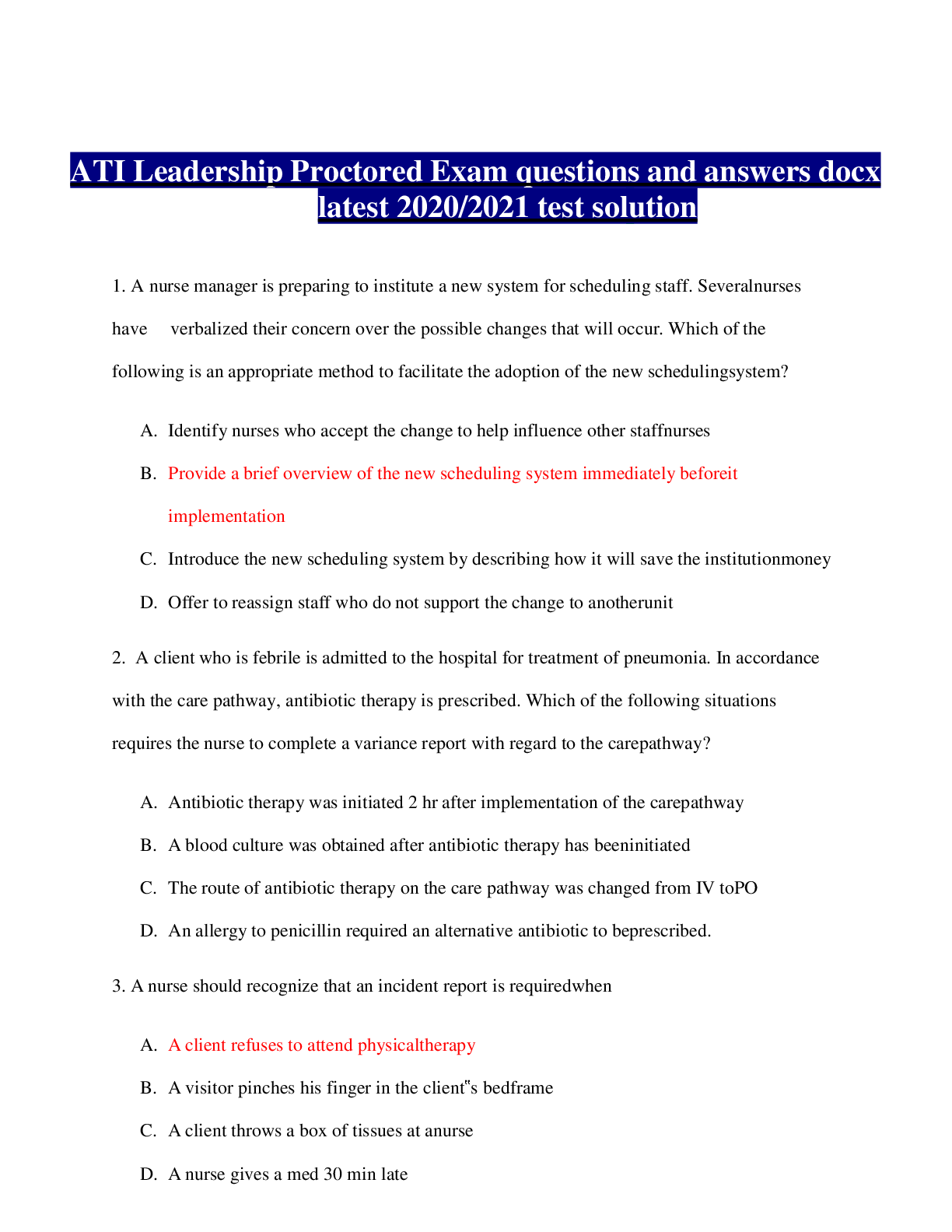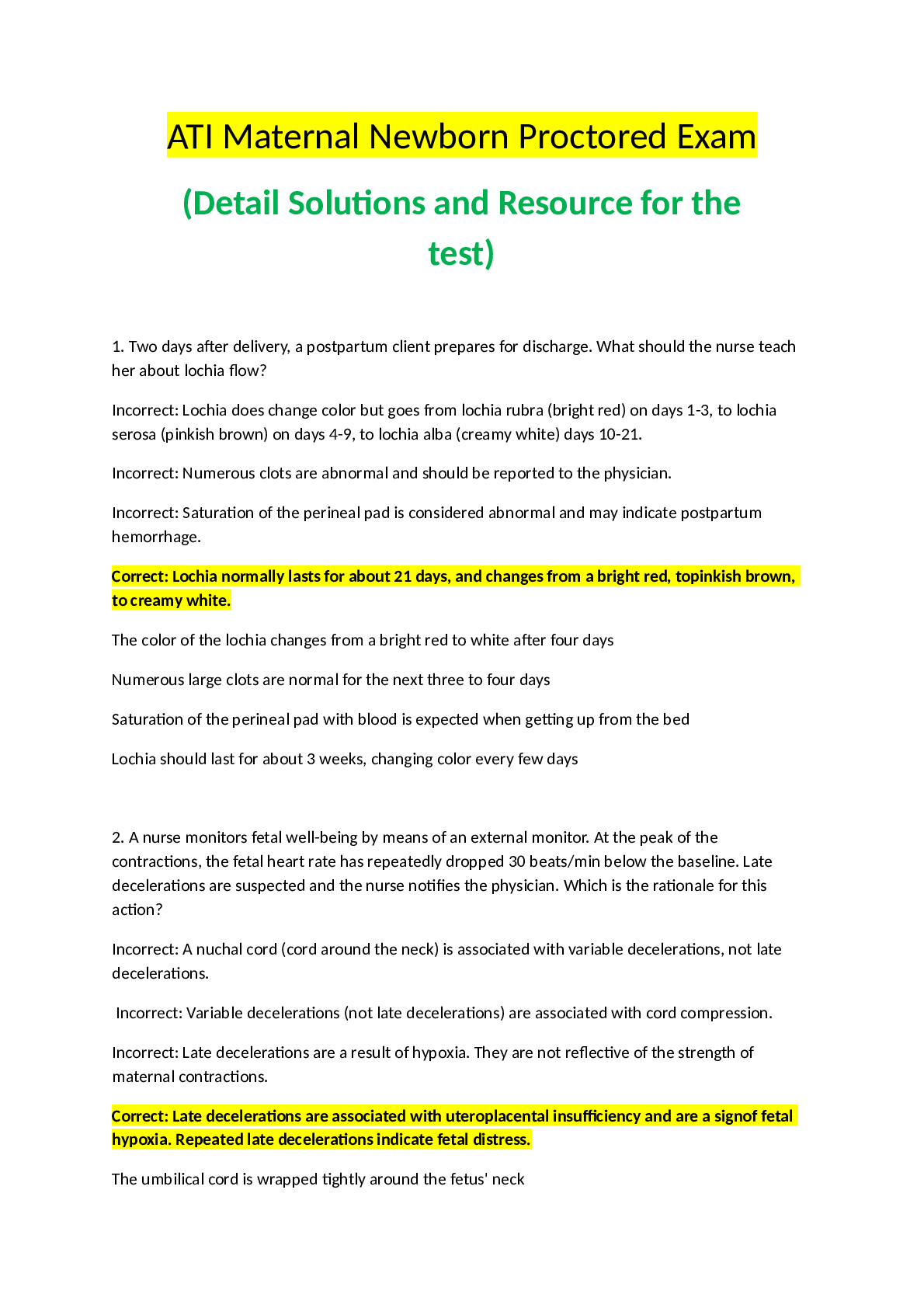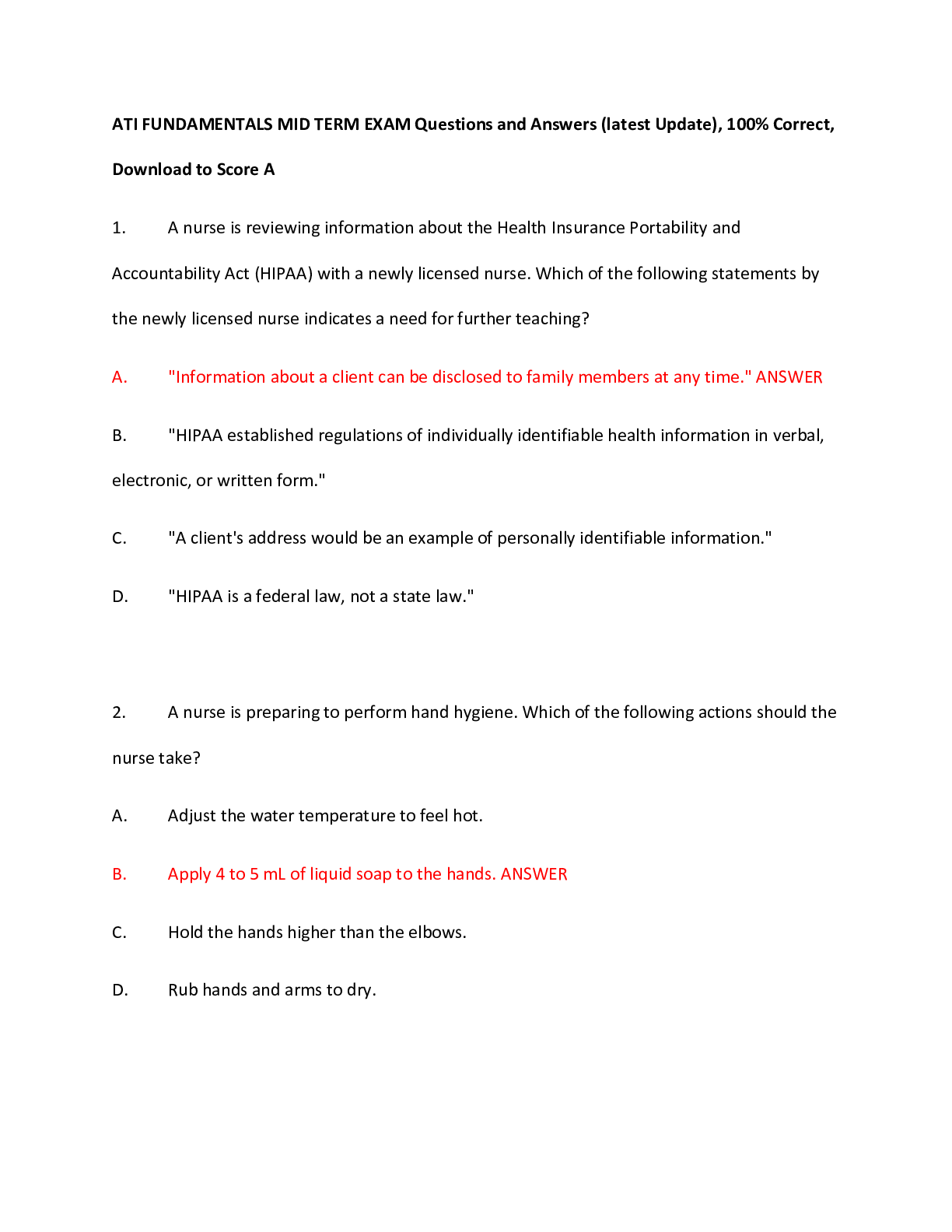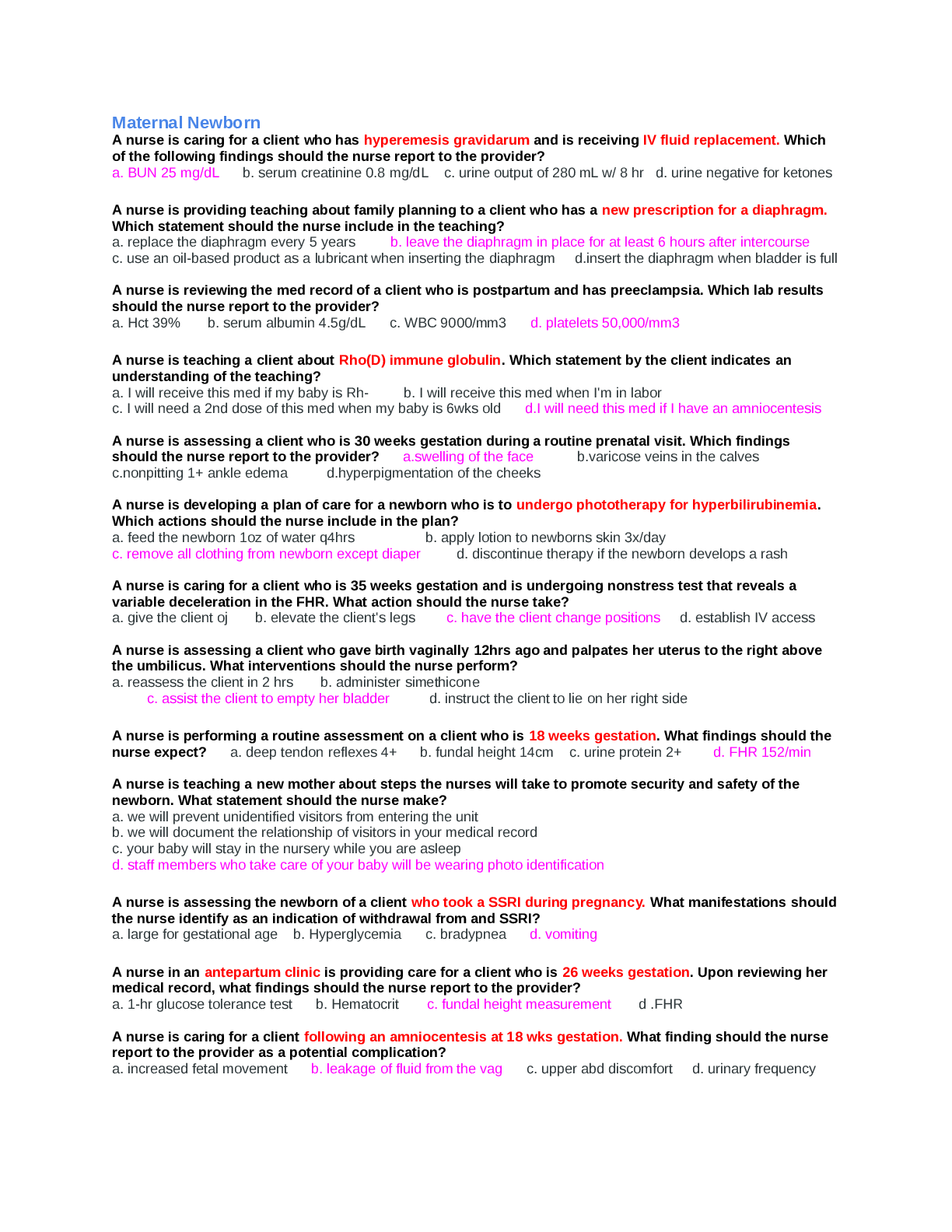*NURSING > QUESTIONS and ANSWERS > NR509 Advanced Health Assessment Final Exam Questions and Correct Answers, Complete Solution. (All)
NR509 Advanced Health Assessment Final Exam Questions and Correct Answers, Complete Solution.
Document Content and Description Below
NR509 Advanced Health Assessment Final Exam Questions and Correct Answers, Complete Solution. Regions of the abdomen -right hypochondriac, epigastric, left hypochondriac -right lumbar, umbilical, ... left lumbar -right iliac/inguinal, hypogastric, left iliac/inguinal Structures in RUQ liver, gallbladder, pylorus, duodenum, hepatic flexure of colon, and head of pancreas Structures in LUQ Spleen, splenic flexure of colon, stomach, and body and tail of pancreas Structures in LLQ Sigmoid colon, descending colon, left ovary Structures in RLQ Cecum, appendix, ascending colon, terminal ileum, and right ovary Bone in the abdomen that protects the stomach Xiphoid process Ribs that protect most of the spleen Left 9th, 10th, 11th Palpating the pancreas in healthy adults Cannot be detected Where do you check for kidney tenderness? At the costovertebral angle (CVA) Where is the costovertebral angle? Formed by the lower border of the 12th rib, and the transverse process of the upper lumbar vertebrae What can be palpated above the symphysis pubis? A distended bladder Key info to obtain for someone with abdominal pain: Onset The timing as to when the patient's symptoms occurred and it's progression can help determine the likelihood of an emergent cause Key info to obtain for someone with abdominal pain: location The knowledge of where the viscera are positioned in the abdominal cavity is a key part in narrowing the differential diagnosis to the potential affected organs Key info to obtain for someone with abdominal pain: character Determining underlying pathophysiologic process of the patient's pain (visceral vs somatic) may help in elucidating the cause Key info to obtain for someone with abdominal pain: radiation Presence or absence of the pain migration can help determine the cause, especially in disease, processes involving the liver, biliary, tract, and appendix. Key info to obtain for someone with abdominal pain: palliative, provoking, or associated factors These may provide insight into the differential diagnosis. Examples include relief of pain by vomiting, increased pain with eating, anorexia, fever, diarrhea, and constipation. [Show More]
Last updated: 6 months ago
Preview 5 out of 26 pages

Loading document previews ...
Buy this document to get the full access instantly
Instant Download Access after purchase
Buy NowInstant download
We Accept:

Reviews( 0 )
$6.00
Can't find what you want? Try our AI powered Search
Document information
Connected school, study & course
About the document
Uploaded On
Dec 03, 2024
Number of pages
26
Written in
Additional information
This document has been written for:
Uploaded
Dec 03, 2024
Downloads
0
Views
22

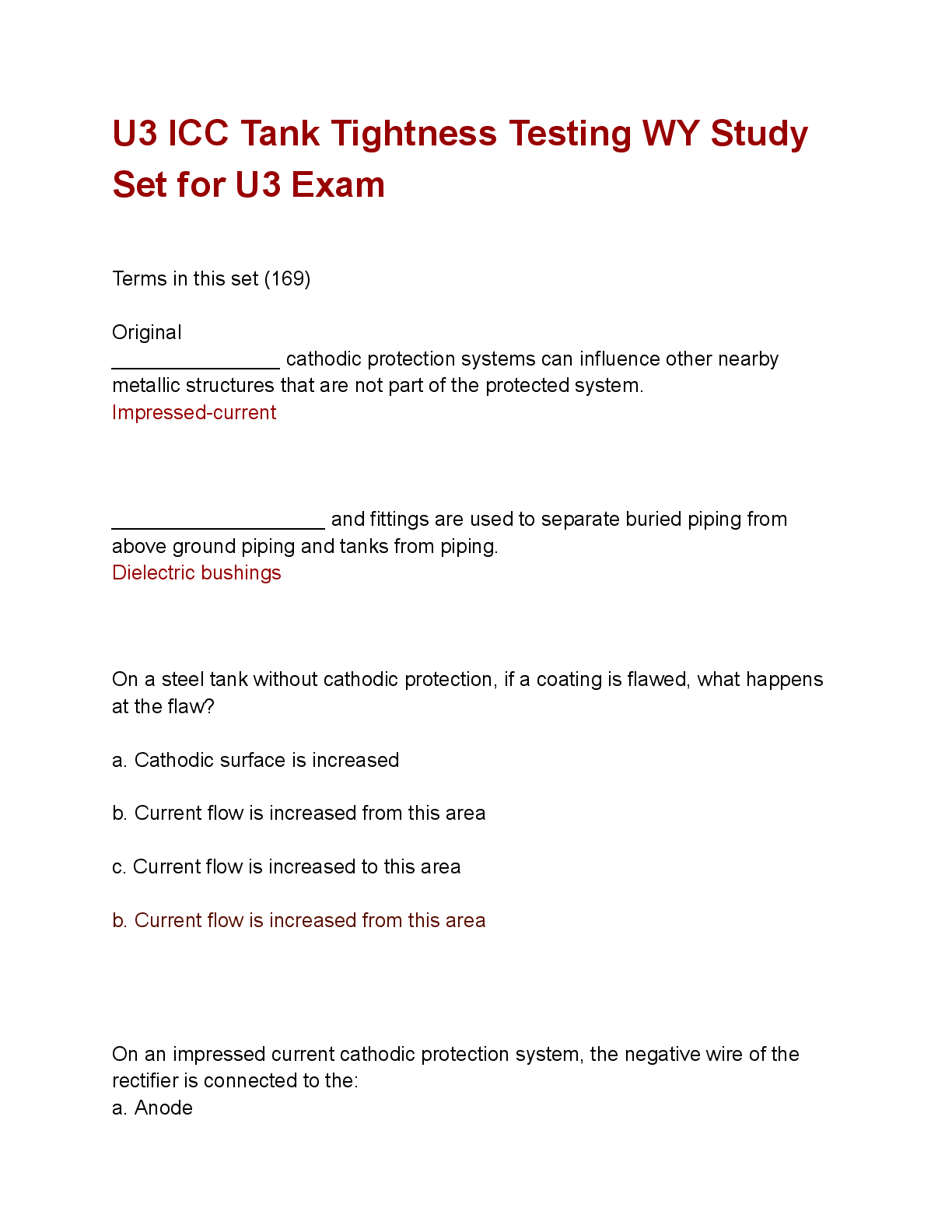
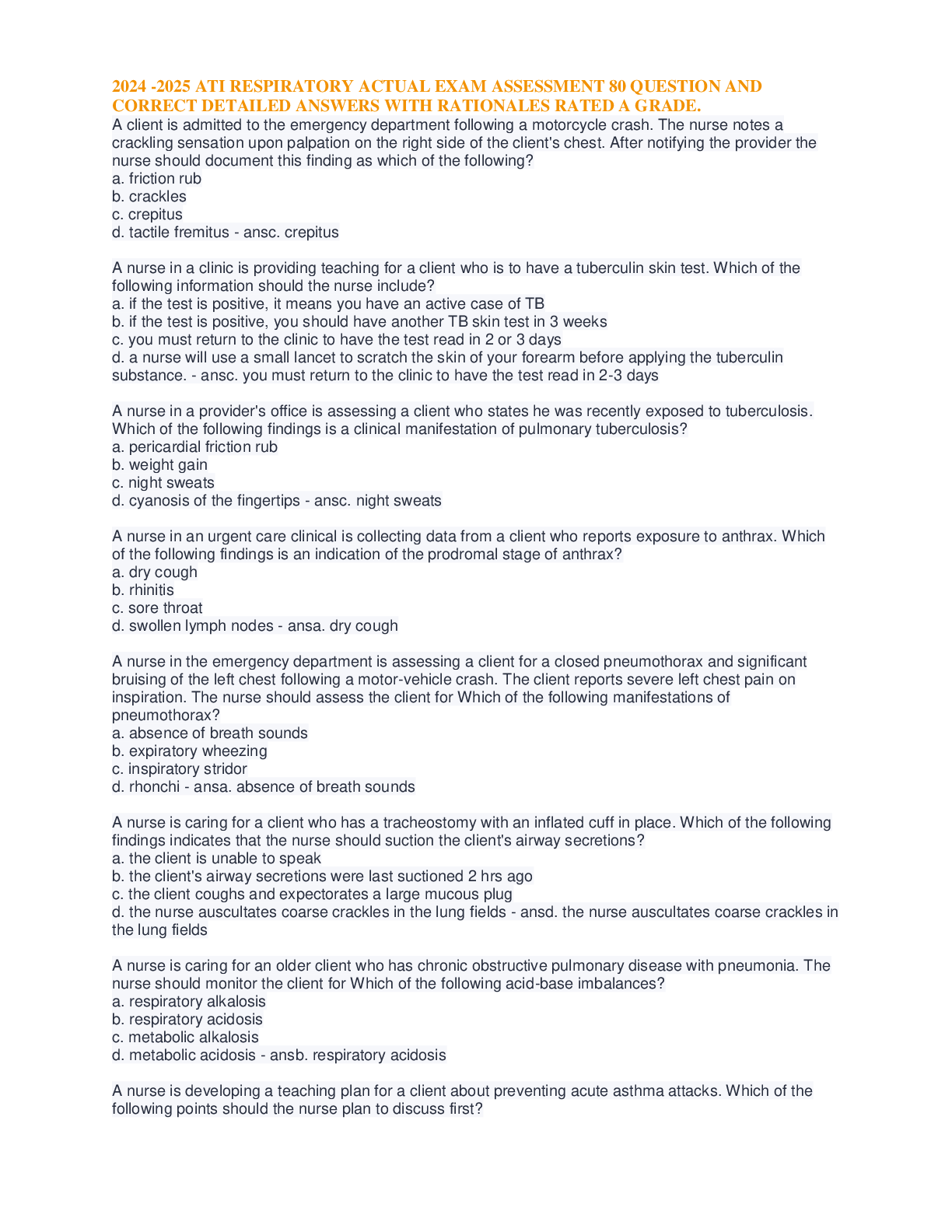
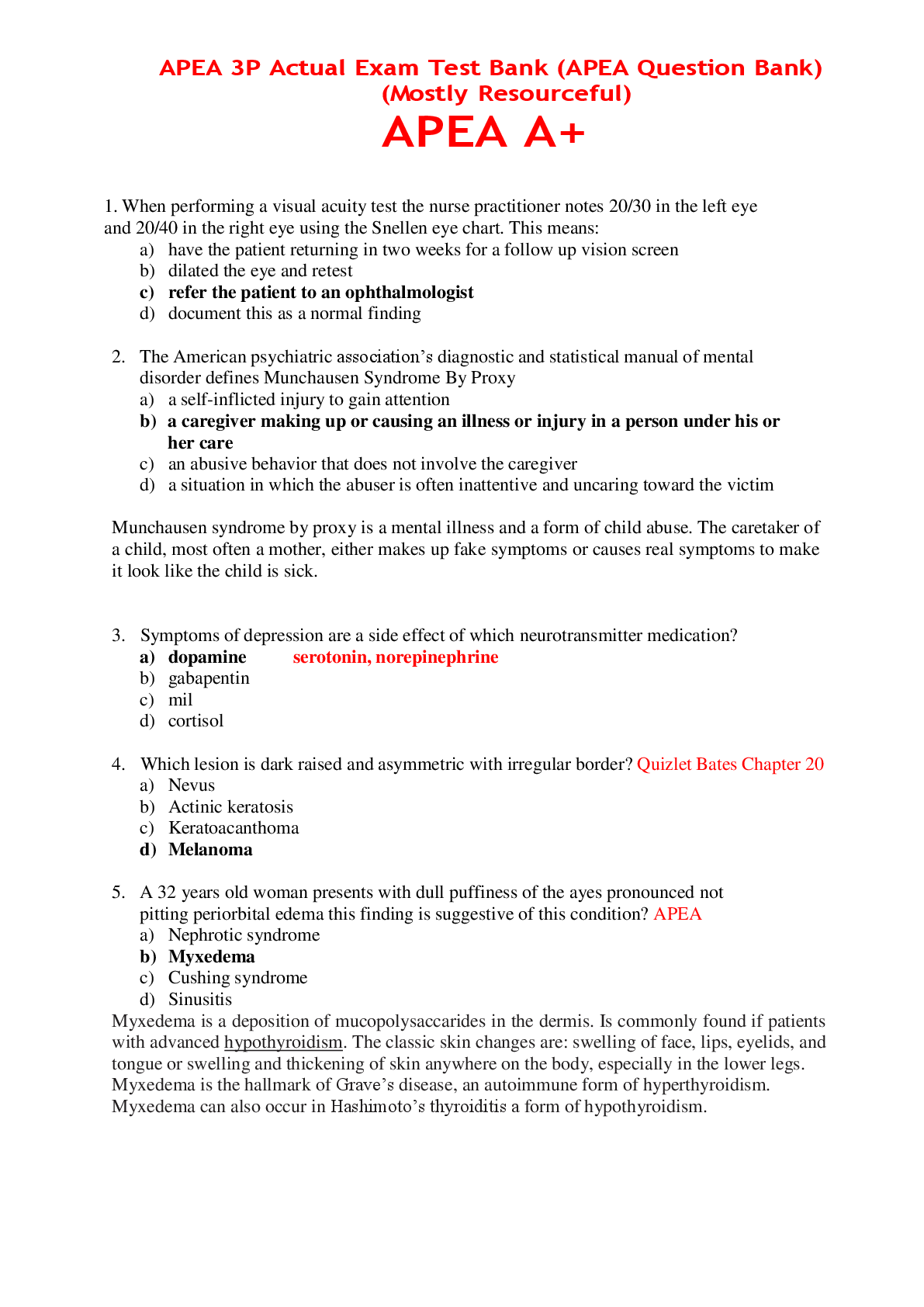
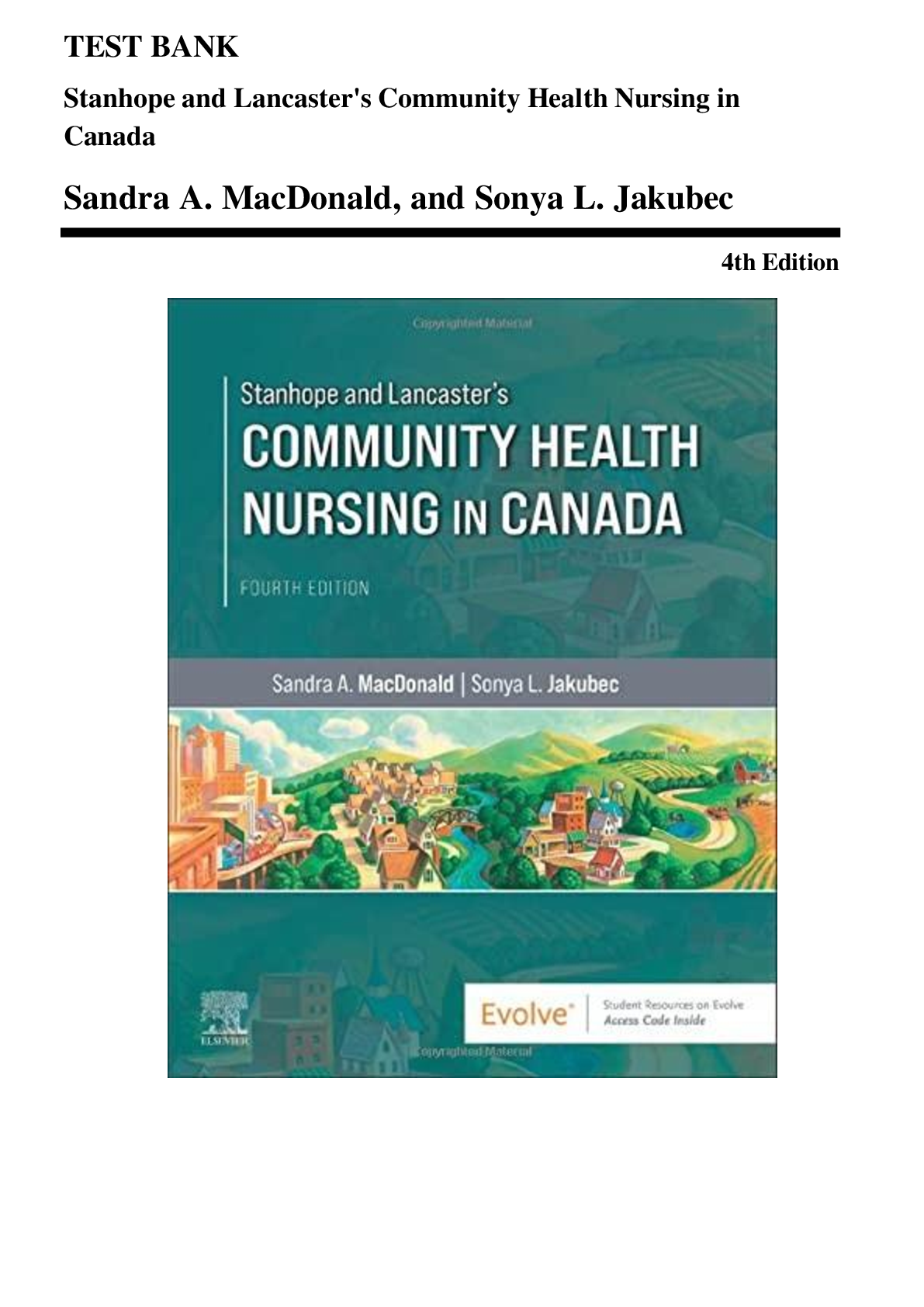
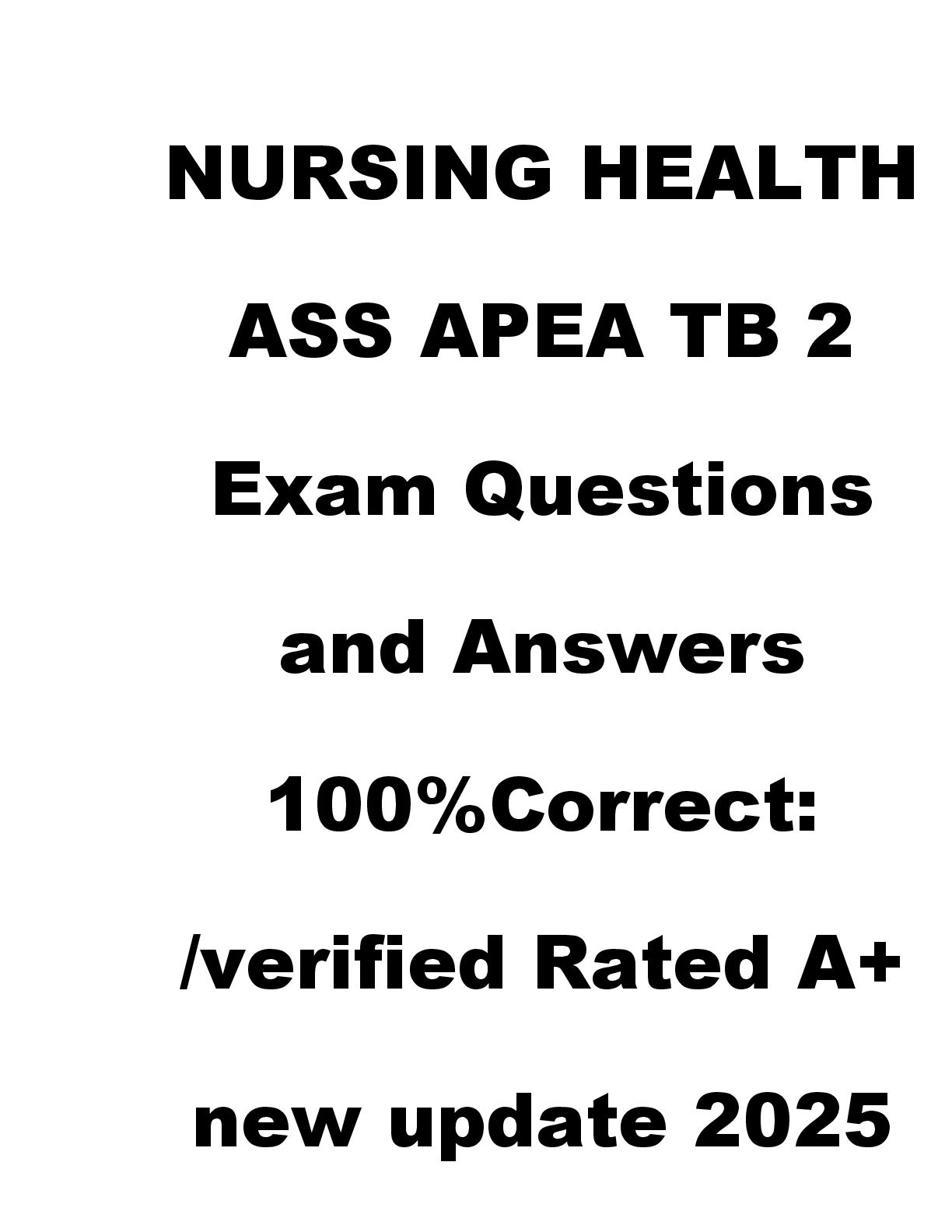
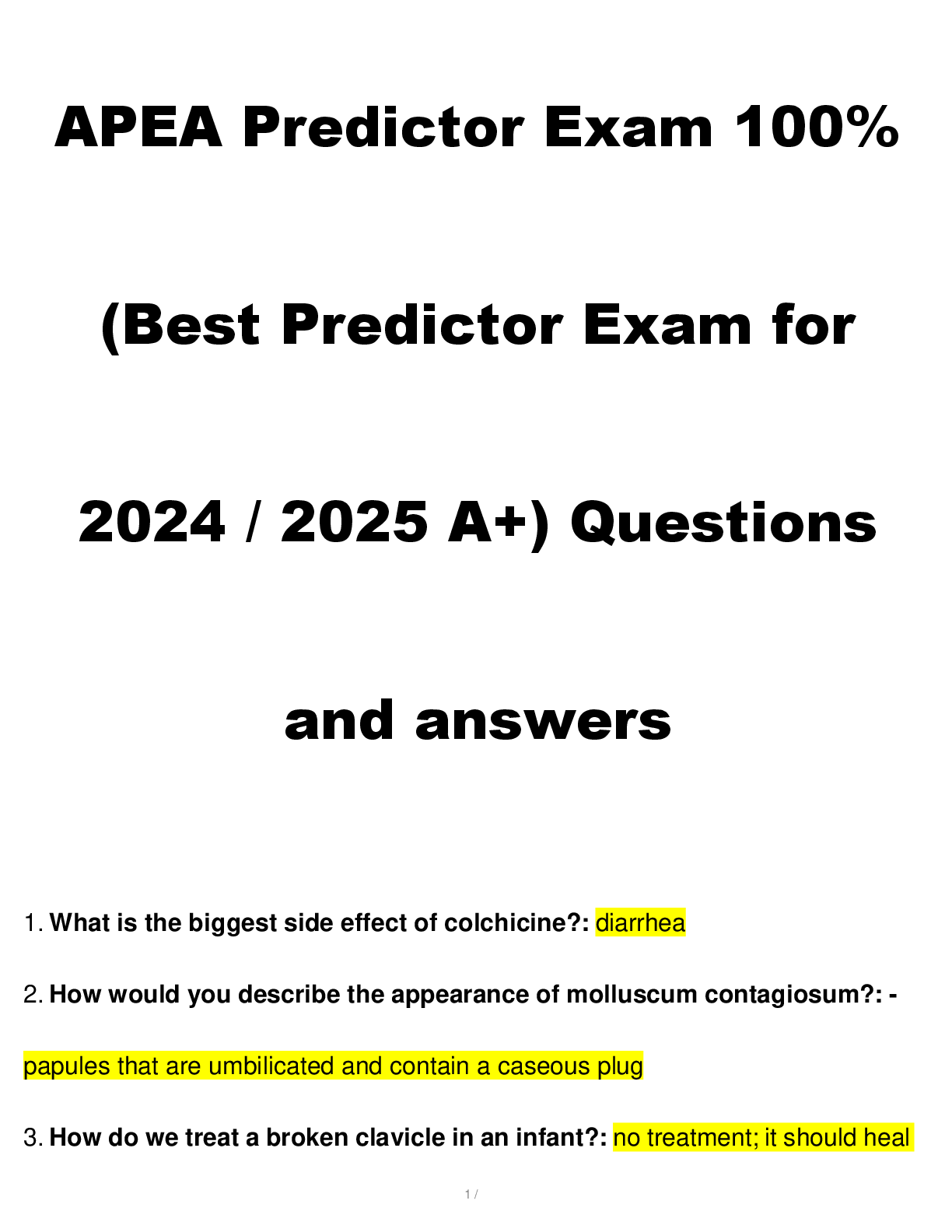

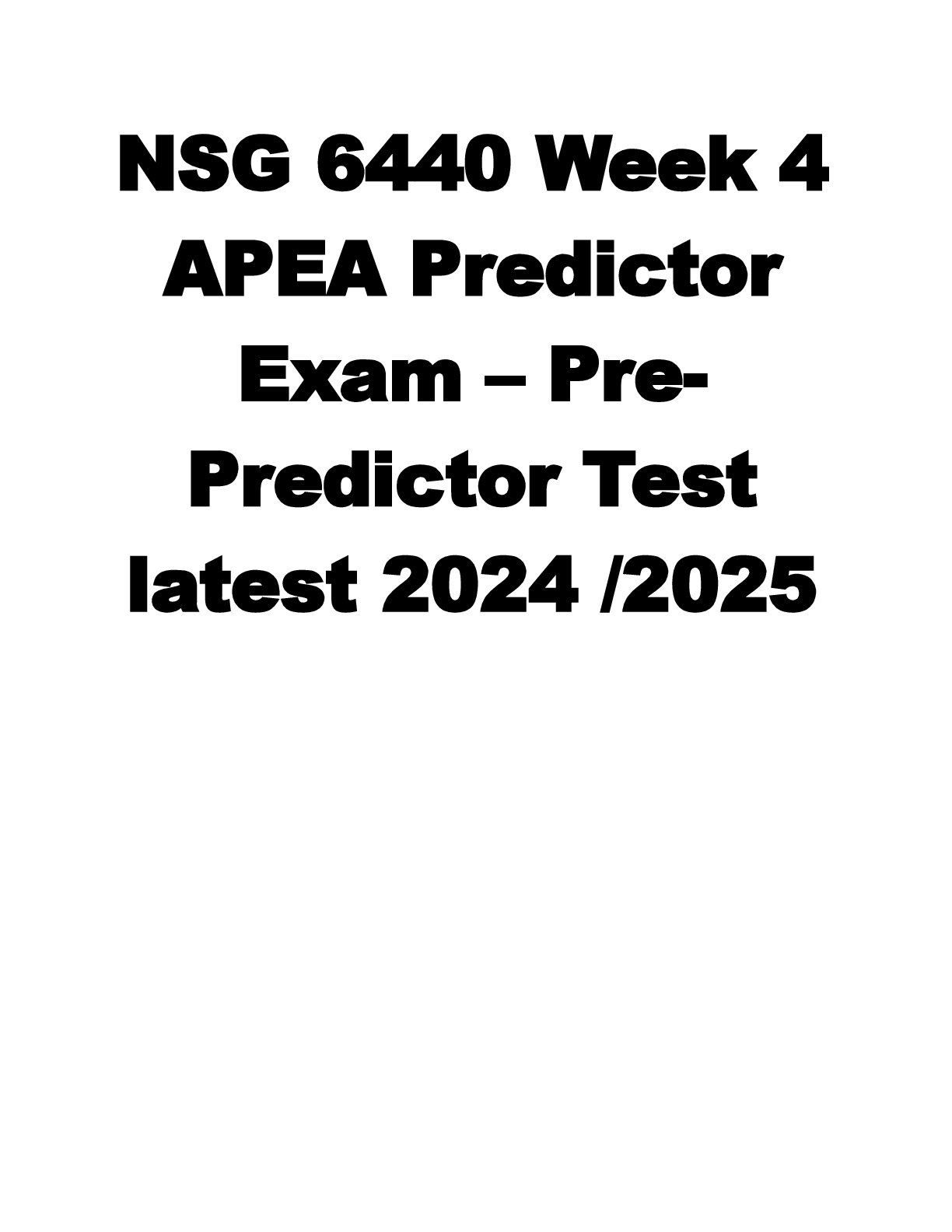
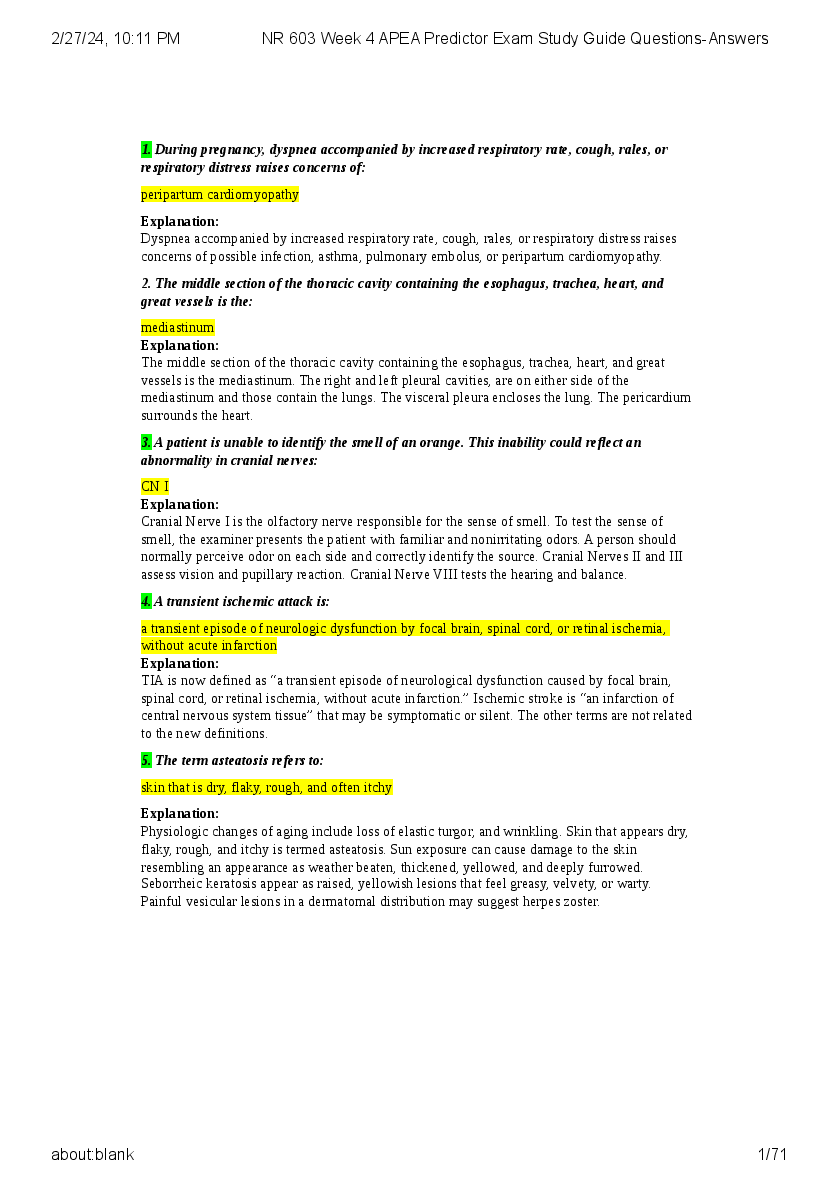
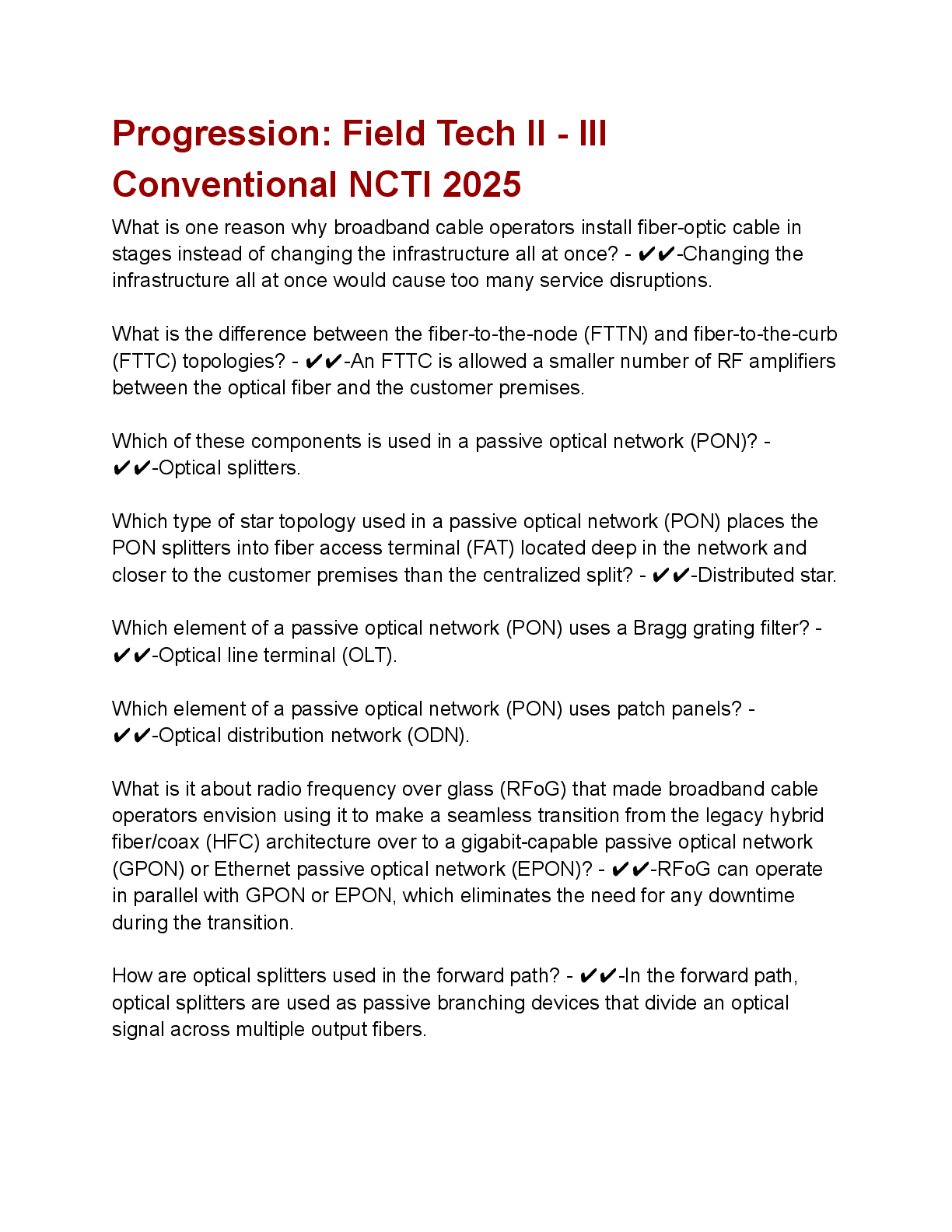
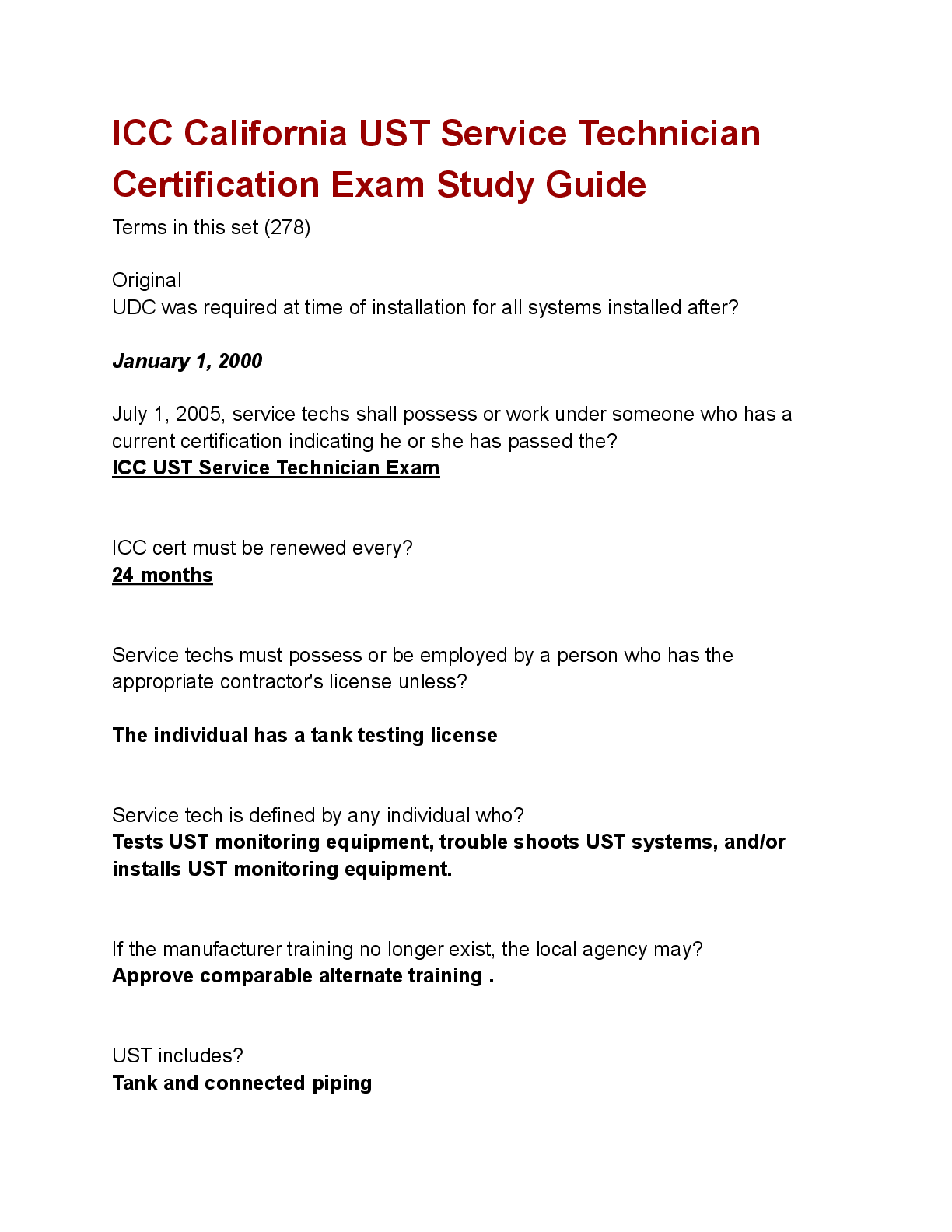
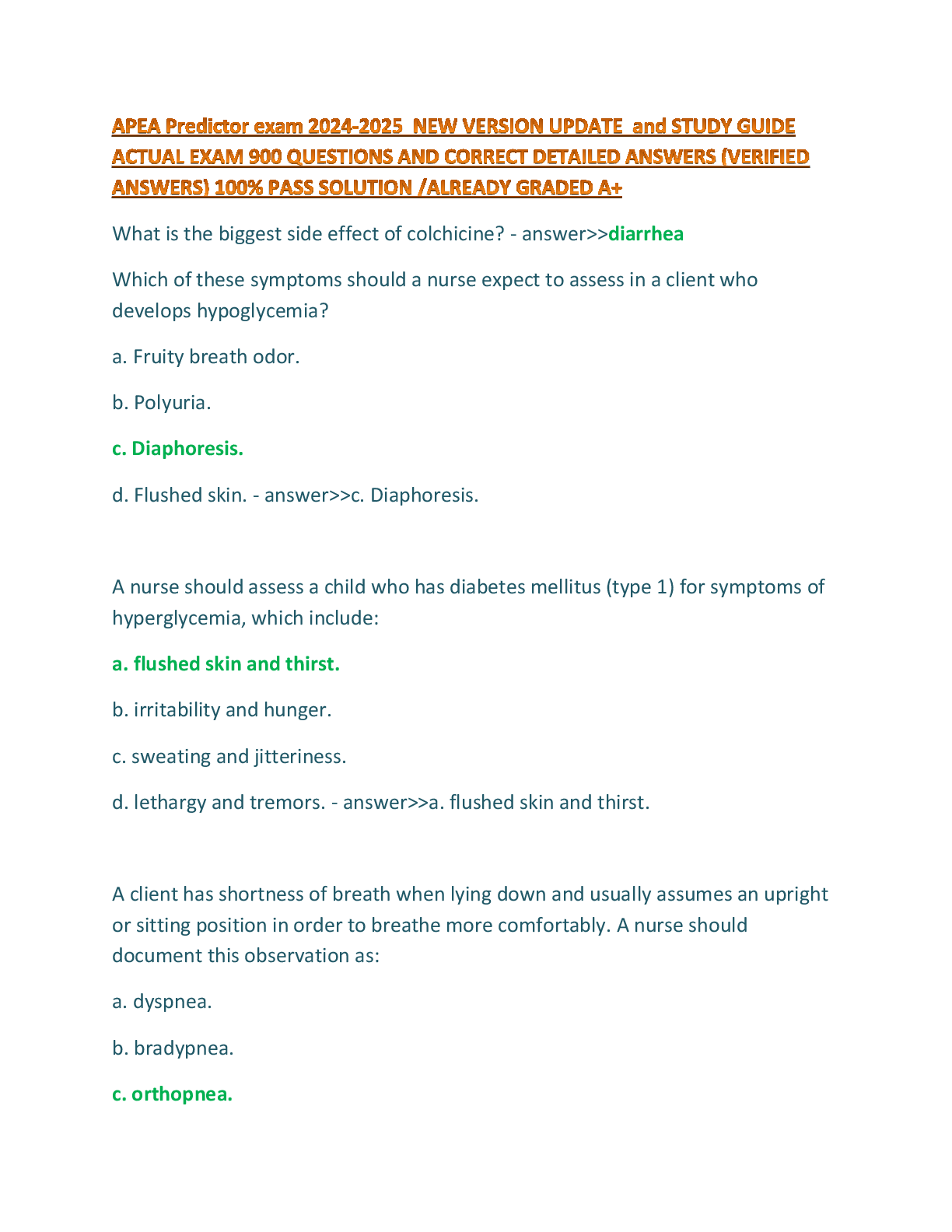
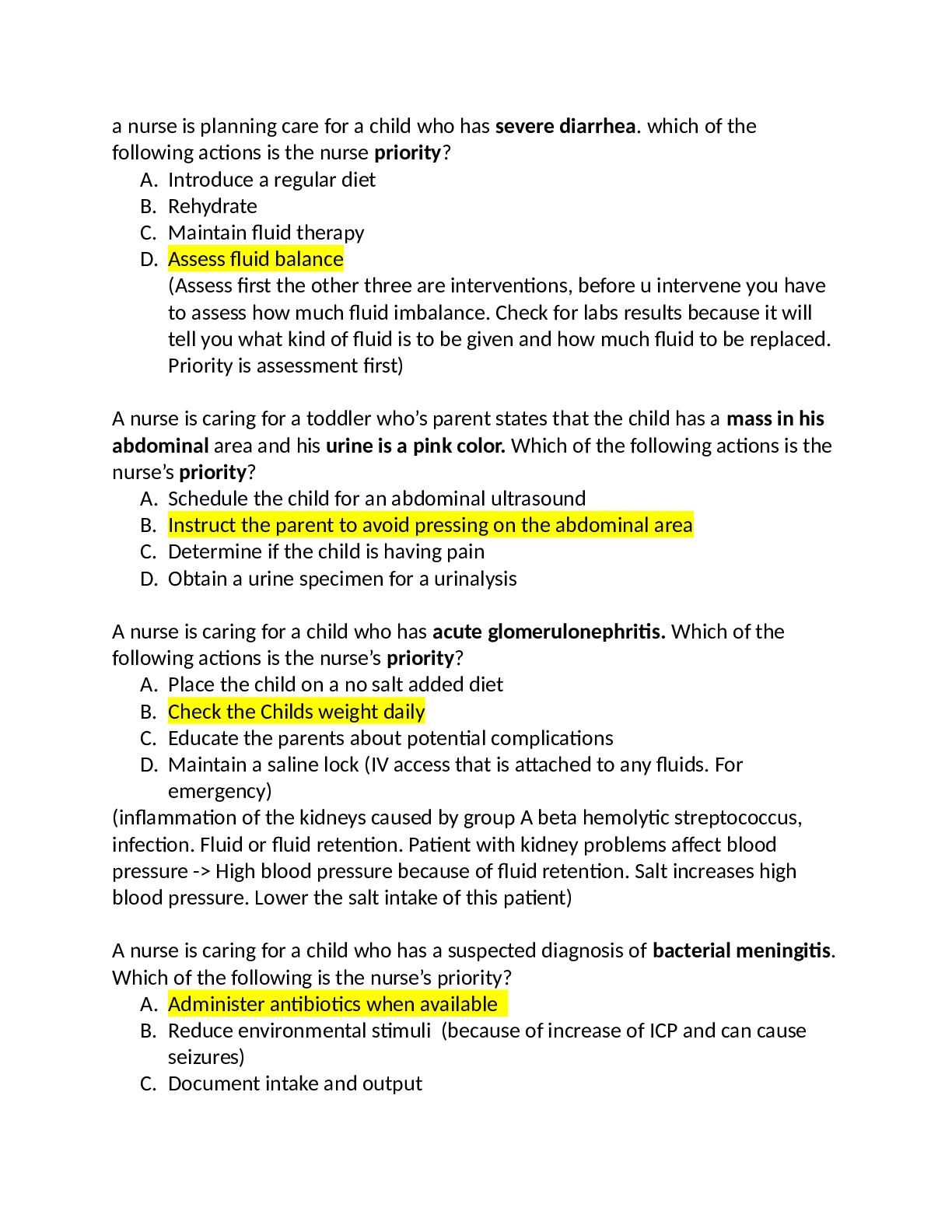

 Questions and Answers (latest Update), 100% Correct, Download to Score A.png)
 Questions and Answers (latest Update), 100% Correct, Download to Score A.png)
